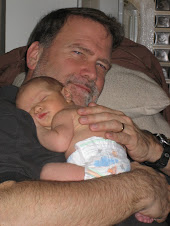Deep Church is Jim Belcher's engaging contribution to the seemingly endless attempt to understand what emergent and emerging churches are about, the differences and conflicts that exist between that stream and "traditional" churches, and the quest to find a middle way that takes the best of the two. I listened to the audiobook, and now will get the written version so that I can mark it more carefully, but I was impressed by a number of points that I would share.
- Belcher writes out of experience and personal quest. His own frustrations with some of the limitations experienced in his traditional church experience led to rethinking of the nature and ministry of the church, and in the process he was able to engage key thinkers in what was then a new, emerging movement. He also had opportunity to dialog with key leaders and observers in evangelicalism who helped him along the way. Thus the book flows well out of his own journey.
- He also writes out of personal concern as a church planting pastor to get it right. As a former church planter, I know firsthand the joys and challenges of trying to make sure that that church becomes what God wants it to be, not what I've experienced in the past--sometimes those are very different birds!
- He gives some of the best insights into the nature of what he identifies as three streams of "emerging" churches, values their thinking, and takes seriously their concerns. He also presents traditional counter-arguments to emerging thinking. At a few points I felt that there were better spokesmen and thinking for "traditionalists" than were cited, but overall his portrayal was fair.
- His idea of the "deep church" as a middle way was intriguing and inviting. I think all of us pastors believe we are doing "deep church," but his concept was different than most--a scripturally anchored fellowship that also draws on the "great tradition" of the ecumenical councils as a helpful (though not equally authoritative) source for keeping the church focused on the most important elements of faith.
- I appreciated his emphasis on the need for a thorough going ecclesiology--a doctrine of the church that is robust and has confessional, community, and missional elements in balance. His praise of denominations as a means of accountability and support for churches may be surprising to some, but not to those of us who have experienced good denominational support in the past.
- I'm not sure that his middle way is truly "middle." He clearly presents the questions of the emerging church movement, but the postmodern strength of questioning does not possess an equal basis for answering. His own position seems to be a blend of traditional theology and thinking with the most conservative stream of emerging church "retooling." It would be hard to be "non-traditional" in the larger sense when you are in a confessional denomination, value ecumenical creeds, practice church discipline, and so on, as Belcher does. So, while I greatly appreciate the book and the concept, it isn't in the middle, but still closer to one side than the other of the spectrum.
Read, or listen, to Deep Church, and you will hear a good story, receive an excellent primer on emergent vs. traditional thinking, and gain a well-reasoned vision for what the church can and should strive to be.





No comments:
Post a Comment